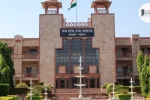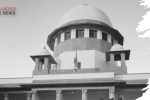Untraceable records should not impede passport renewals: Gujrat High Court

The High Court of Gujarat, in a notable judgment, directed the passport authorities to renew the passport of Ghanshyambhai Shankarbhai Patel despite the unavailability of records from a 2007 criminal case. The judgment, delivered by Justice Pranav Trivedi, underscores that administrative lapses in record-keeping should not obstruct the rights of individuals.
Ghanshyambhai Shankarbhai Patel, the applicant, had applied for the renewal of his passport which was held up due to an untraceable case record from a 2007 criminal complaint. The complaint, registered as CR No.I-503 of 2007 at Naroda Police Station, Ahmedabad, led to Criminal Case No.111 of 2008. Despite multiple attempts, Patel was unable to obtain a certified copy of the judgment due to the untraceable nature of the records. Consequently, his application for passport renewal was stalled by the passport authority, which insisted on a No Objection Certificate (NOC) from the police or an acquittal order.
Untraceable Court Records: The court meticulously examined the situation and observed that the absence of the court records should not penalize the applicant. Justice Trivedi noted, “The petitioner has been running from pillar to post to get the records of the criminal case and the No Objection Certificate from the police, but has been unable to do so due to administrative lapses.” The court emphasized that the applicant’s efforts and the police’s acknowledgment of the missing records should suffice in considering his passport renewal application.
Legal Reasoning and Judgment: The court’s decision was firmly rooted in the interpretation of Section 6(2)(f) of the Passports Act, 1967, which governs the issuance and renewal of passports. Justice Trivedi clarified that while the filing of a criminal complaint might be relevant for issuing a new passport, it should not impede the renewal process. “The pendency of a criminal complaint, which culminated into a criminal case, does not justify refusal of passport renewal under Section 6(2)(f) of the Passports Act, 1967,” Justice Trivedi stated.
Further, the court referred to several landmark cases, including Satwant Singh Sawhney v. D. Ramarathnam, Maneka Gandhi v. Union of India, and Suresh Nanda v. CBI, underscoring the precedence of fundamental rights over administrative hurdles. Justice Trivedi remarked, “The passport authority was not justified in rejecting the renewal application based on an untraceable criminal case record.”
The High Court’s ruling mandated the passport authority to process Patel’s renewal application within one month, based on the available documents and not the pending criminal case. This judgment is a significant step in ensuring that bureaucratic inefficiencies do not infringe upon individual rights. The court’s direction reinforces the principle that administrative lapses should not become a barrier to accessing fundamental services such as passport renewals.
This decision is expected to have wide-ranging implications, particularly in cases where administrative inefficiencies and lost records affect individuals’ rights. It sets a precedent that emphasizes the importance of timely and fair administrative processes, ensuring that citizens are not unduly penalized for lapses beyond their control.
Date of Decision: May 24, 2024
Ghanshyambhai Shankarbhai Patel vs. State of Gujarat & Ors.






